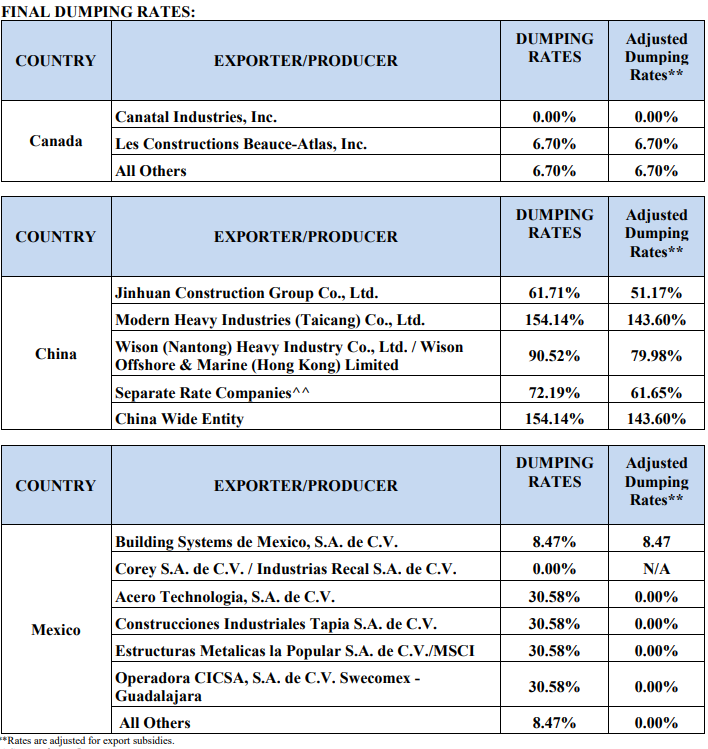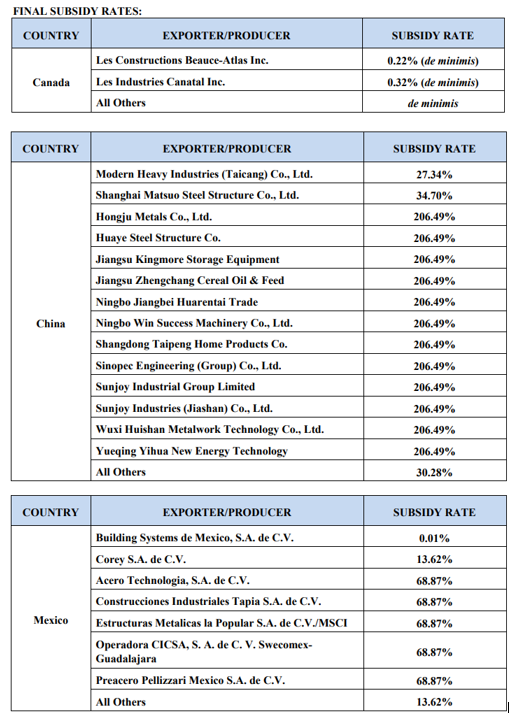Canada

January 28, 2020
Structural Fabricated Steel Duties for Canada, Mexico and China
Written by Sandy Williams
The Department of Commerce announced the affirmative final determinations in the antidumping duty and countervailing duty investigations of imports of fabricated structural steel from Canada (AD only), China and Mexico, and a negative final determination in the CVD investigation of FSS from Canada.
Canada and Mexico have been assigned antidumping rates of 6.7 percent and 8.47 percent, respectively. Antidumping duties for China range from 51.17 percent to 143.60 percent.
Subsidy rates for China ranged between 27.34 percent to 206.49 percent. Subsidy rates for Mexico were between 0.01 and 68.87 percent. The countervailing investigation determination was negative for Canada.
The petitioner in the investigation is the American Institute of Steel Construction Full Member Subgroup (Chicago, Ill.)
In 2018, imports of FSS from Canada, China, and Mexico were valued at an estimated $722.5 million, $897.5 million, and $622.4 million, respectively.
The International Trade Commission will make its final determination on or about March 9.








